From Hurt to Healing: Understanding and Addressing Cultural Trauma
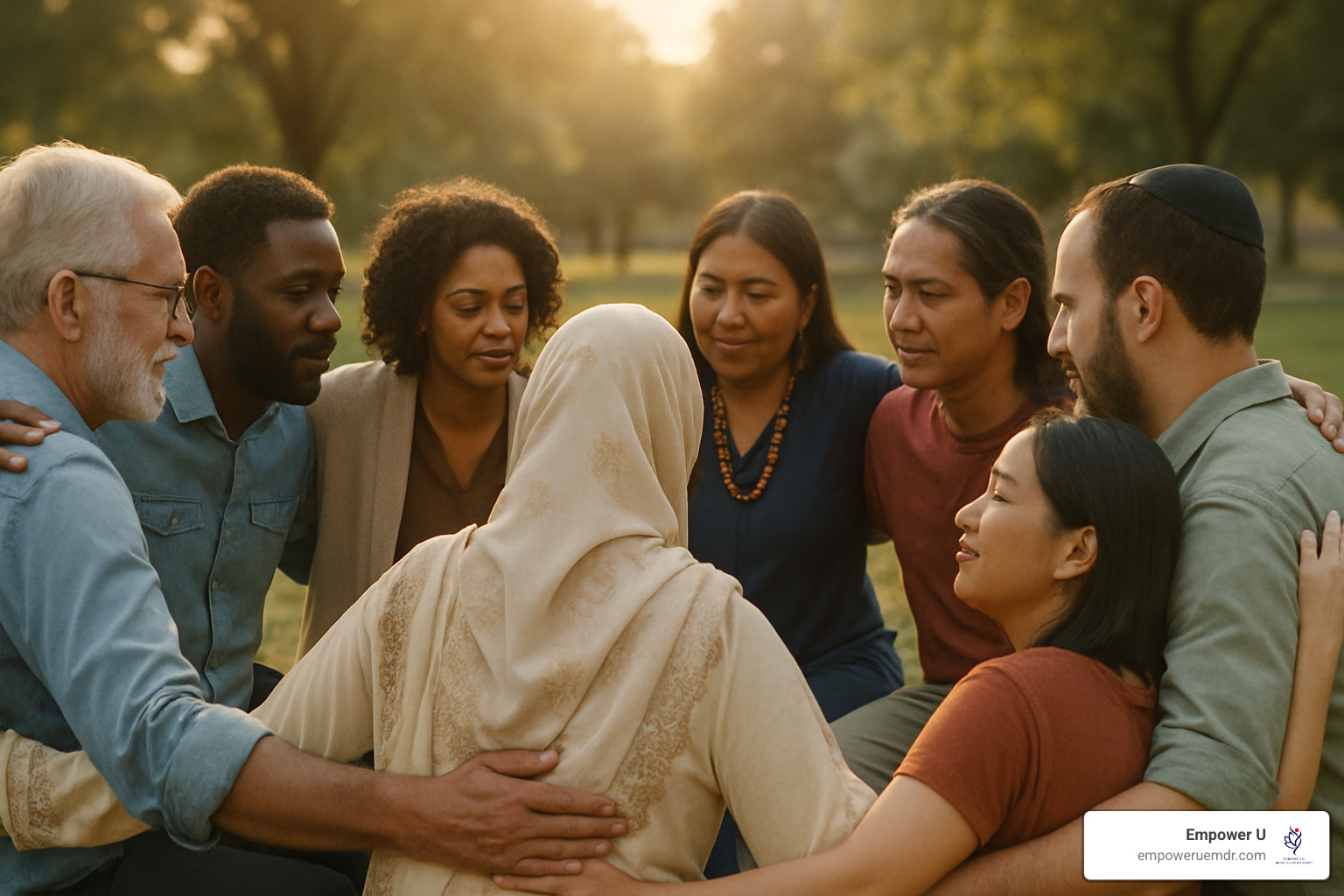
If you're reading this as someone caught between two worlds—honoring your family's culture while navigating life in America—you might recognize a familiar ache. the guilt when you choose your own path, the pressure to hide your emotions to keep the peace, or the confusion of feeling anxious or down even though “nothing bad” happened. These aren’t personal flaws—they’re natural responses to something deeper: cultural trauma.
I'm Cristina Deneve from Empower U, a bilingual EMDR therapist in Irvine, CA, and I understand this struggle intimately. My journey from engineering to therapy was part of my own process of reconnecting with myself and redefining my identity. As a bicultural immigrant in a biracial marriage, raising three American children, I've lived the complexity of navigating between cultures. That lived experience shapes how I approach therapy—not as someone looking in from the outside, but as someone who has walked this path of healing cultural trauma.
What Is Cultural Trauma?
Cultural trauma goes far beyond individual painful experiences. It's the deep wound that occurs when entire communities and groups face systematic attacks on their language, traditions, values, and way of life. Unlike personal trauma that might stem from a specific incident, cultural trauma emerges from ongoing oppression that affects not just individuals, but entire families and communities across generations.
Historical trauma represents one of the most significant forms of cultural trauma, where past events continue to impact present-day mental health and wellbeing. This collective trauma affects whole groups of people who share common cultural backgrounds, creating psychological wounds that persist across generations and impact mental and physical health outcomes.
Think of it this way: when someone experiences individual trauma, they can often turn to their cultural community for healing and support. But when that very culture has been damaged or devalued, people lose access to their traditional sources of strength and identity. This creates a unique form of suffering that's both deeply personal and inherently collective, often leading to mental illness, physical illness, and other health disparities within affected communities.
For many of my clients—adult children of immigrants—this shows up as a constant internal conflict. You love your parents and want to honor their sacrifices, but you also need to live authentically in the world you've grown up in. You might feel guilty for pursuing dreams that seem to move you away from family expectations, or anxious about discrimination when you embrace your cultural identity publicly.
The Roots of Cultural Wounding and Historical Trauma
Cultural trauma and historical trauma stem from various sources, but they share common themes of systematic oppression that create psychological wounds affecting entire cultures:
Historical trauma and systematic oppression have left lasting impacts on entire populations. When communities face forced relocation, prohibition of their languages, or destruction of their sacred sites, the trauma destroys family bonds and community structures that traditionally provide resilience and support.
Immigration policies demanding rapid assimilation create impossible choices for families. Parents often feel they must choose between maintaining their heritage and helping their children succeed economically. This creates internal family conflict and identity fragmentation that can last for generations, contributing to mental and physical illness within immigrant communities.
Ongoing discrimination and microaggressions keep wounds fresh and contribute to health disparities. Even when overt racism decreases, daily experiences of being othered, having your name mispronounced, or being asked "where are you really from?" create chronic stress that accumulates over time, affecting both mental health and physical health.
Economic exclusion and limited opportunities that require cultural abandonment add another layer of collective trauma. When success seems to require leaving your culture behind, families face devastating choices between economic security and cultural identity, creating a persistent cycle of loss and grief.
These experiences create what researchers call "worldview rupture"—a tear in how communities and cultural groups understand themselves and their future. When the stories, practices, and institutions that give life meaning are attacked or devalued, people lose access to the very resources they would typically use for healing culturally based trauma.
How Cultural Trauma and Historical Trauma Travel Through Generations
One of the most important things I help my clients understand is that intergenerational trauma doesn't stop with the first generation. Research on epigenetics shows that chronic stress from cultural trauma can actually change gene expression in ways that affect children and grandchildren. This means that the anxiety, depression, or hypervigilance you might be experiencing could have biological roots in your parents' or grandparents' experiences of historical trauma.
But culturally based trauma travels through families and communities in other ways too:
Through parenting strategies shaped by fear and collective trauma. Parents who experienced discrimination often develop protective strategies that, while well-intentioned, may inadvertently limit their children's cultural expression. This might look like discouraging heritage language use, avoiding cultural practices that might draw attention, or maintaining constant vigilance about potential threats.
Through disrupted community structures and cultural transmission. When cultural trauma affects entire groups, it often breaks down the community structures that traditionally support families through difficult times. This disruption affects how cultural practices, languages, and wisdom are passed between generations.
Through family roles shaped by historical trauma. Cultural trauma can create rigid family dynamics where children become responsible for healing their parents' wounds or proving the family's worth through achievement. This can lead to perfectionism, people-pleasing, and difficulty setting boundaries.
Through interrupted healing resources and cultural practices. When cultural practices, languages, and traditions are disrupted by collective trauma, families lose access to traditional sources of meaning and resilience. This creates a void that's often filled by trauma narratives rather than cultural strengths.
Common Signs of Intergenerational Cultural Trauma
If you're wondering whether cultural trauma or historical trauma might be affecting your mental health, here are some common patterns I see in communities that have experienced collective trauma:
Mental health symptoms you might experience:
- Anxiety that seems disproportionate to current circumstances
- Identity confusion and difficulty integrating different parts of yourself
- Chronic feelings of not belonging anywhere completely
- Shame about your cultural background or appearance
- Depression and feelings of emptiness related to cultural disconnection
- Hypervigilance and difficulty trusting others
- Perfectionism and intense fear of failure
Physical health impacts from cultural trauma:
- Chronic tension, headaches, or digestive issues
- Feeling "on edge" or easily startled
- Sleep difficulties or nightmares
- Fatigue that doesn't improve with rest
- Other stress-related physical illness
In your relationships and family, you might see:
- Difficulty discussing cultural identity or family history
- Conflict over "how cultural" to be
- Feeling caught between family expectations and personal desires
- Communication patterns that avoid emotional topics related to cultural trauma
- Feeling responsible for your parents' happiness or success
- Intergenerational conflict about values and lifestyle choices
Recognizing these patterns helps normalize your experience. These responses make perfect sense given the complex cultural dynamics many families and communities navigate when healing from historical trauma.
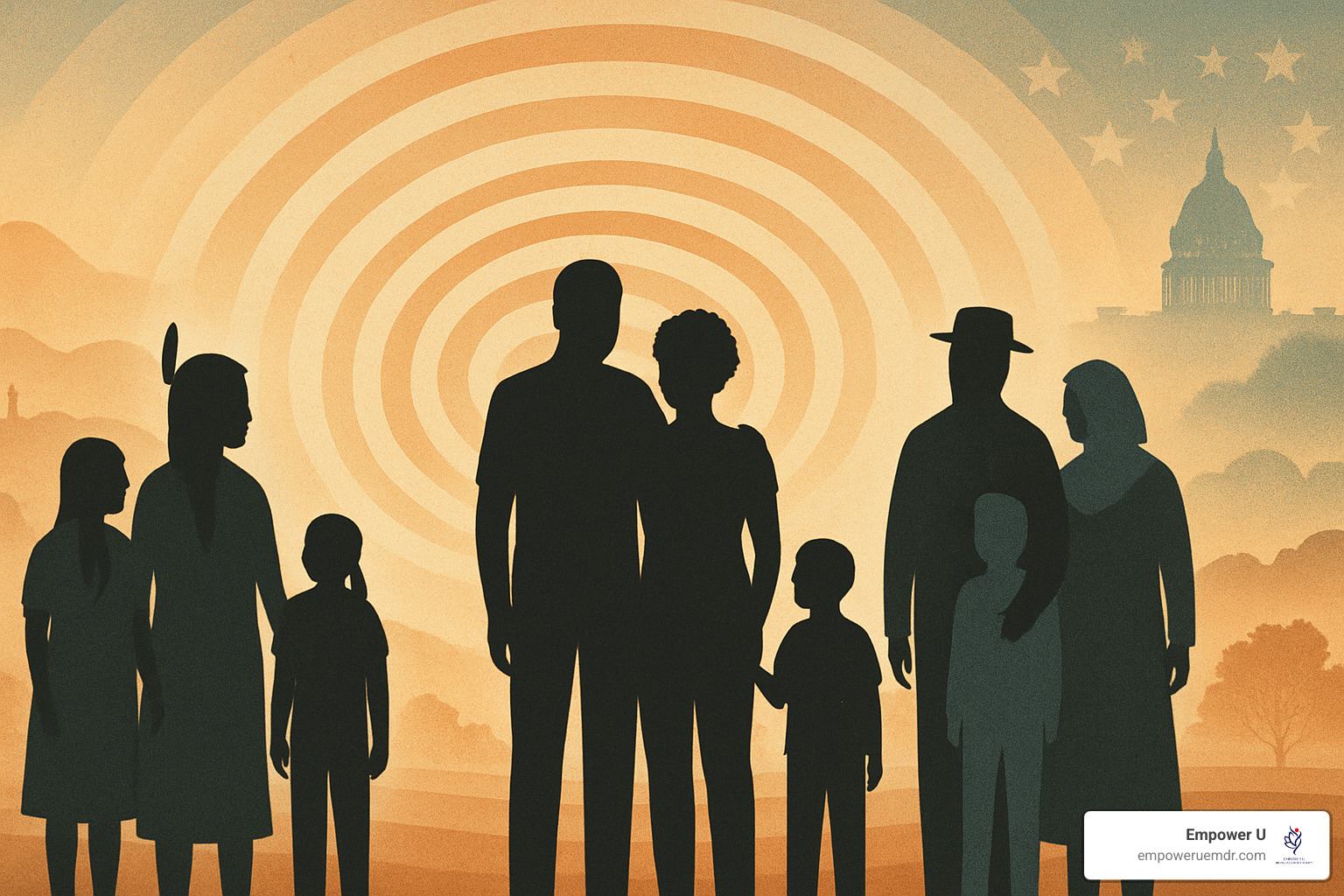
My Approach to Healing Cultural Trauma
In my practice, I use several therapeutic approaches that work together to address cultural trauma and historical trauma at multiple levels. My approach emphasizes cultural competence and understanding of how collective trauma affects mental health:
EMDR Therapy for Cultural Healing
EMDR therapy is particularly powerful for cultural trauma because it helps reprocess painful memories while integrating all parts of who you are. I use culturally adapted EMDR therapy protocols that specifically address experiences related to cultural trauma and historical trauma:
- Memories of discrimination or racism that contribute to mental illness
- Family conflicts about cultural identity and cultural practices
- Shame about cultural background rooted in collective trauma
- Fear of not being accepted in either culture
- Guilt about moving away from family expectations shaped by historical trauma
EMDR therapy helps address the psychological wounds created by cultural trauma while building resilience and cultural healing. The goal isn't just symptom reduction, but helping you integrate your cultural identity in a way that feels authentic and empowering.
Narrative Therapy and Cultural Healing
Much of cultural trauma involves internalizing negative stories about who you are and where you belong. Narrative therapy helps you examine these stories shaped by historical trauma and rewrite them from a strength-based perspective that promotes cultural healing.
Instead of "I don't belong anywhere," we might explore "I have the unique gift of understanding multiple worlds." Instead of "I'm letting my family down," we might discover "I'm honoring my family by living authentically while maintaining connection to my cultural practices."
This approach helps you externalize problems created by cultural trauma, recognizing that you are not your trauma, and identify the many ways you've demonstrated resilience and cultural strength.
Internal Family Systems (IFS) for Collective Trauma
Many people affected by cultural trauma develop different "parts" of themselves to navigate different cultural contexts. You might have a part that knows how to succeed in mainstream American culture, another part that connects with your heritage culture, and perhaps a part that feels responsible for bridging these worlds for your family.
IFS work helps you understand these different parts created by cultural trauma with compassion and integrate them so you can show up as your whole self in all contexts, promoting both individual healing and cultural healing.
Building Cultural Competence and Bicultural Identity
A significant part of my work involves helping clients develop what I call "bicultural competence"—the ability to navigate multiple cultural contexts while maintaining an authentic sense of self despite experiences of cultural trauma:
- Learning to code-switch between cultures without losing yourself
- Developing a coherent identity that integrates different cultural aspects
- Building skills for handling cultural conflicts and microaggressions
- Creating new traditions that honor your heritage while fitting your current life
- Developing resilience in the face of ongoing discrimination
Bilingual Therapy for Cultural Healing
Offering therapy in both English and Spanish allows for deeper emotional processing of cultural trauma. Sometimes the words for your deepest feelings about cultural trauma only exist in your first language. Sometimes the shame you carry from historical trauma is attached to one language more than another. Having the flexibility to move between languages as needed can unlock healing that might not be possible in English alone.
Family and Community Healing from Cultural Trauma
Because cultural trauma and historical trauma affect entire family systems and communities, healing often extends beyond individual therapy to address collective trauma:
Family Work for Healing Cultural Trauma
I sometimes work with entire families to address cultural trauma at its source. This might involve:
- Helping families have conversations about their cultural history and experiences of historical trauma
- Supporting parents in understanding how their own trauma might be affecting their children's mental health
- Facilitating discussions about cultural identity and family expectations shaped by collective trauma
- Developing new family traditions that honor heritage while adapting to current circumstances
- Building family resilience to interrupt the transmission of cultural trauma
Community Connections and Cultural Healing
Healing cultural trauma often involves reconnecting with cultural community and rebuilding community structures that support collective healing:
- Finding cultural groups or organizations in Irvine and Orange County
- Reconnecting with heritage language and cultural practices
- Participating in cultural celebrations and traditions that promote cultural healing
- Building relationships with others who share similar experiences of cultural trauma
- Contributing to community efforts that address health disparities
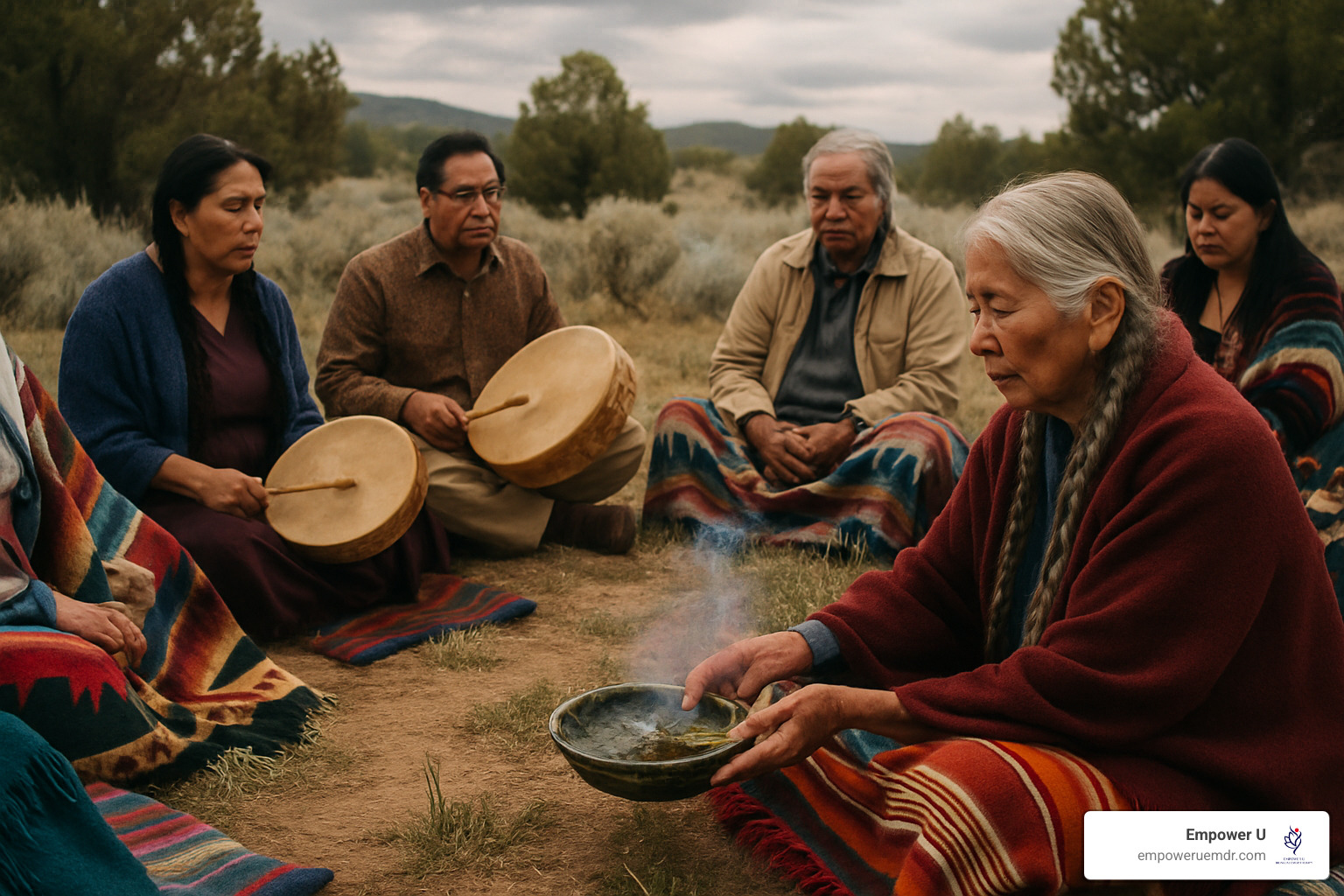
Innovative Strategies for Healing Culturally Based Trauma
Effective treatment of culturally based trauma requires innovative strategies that go beyond traditional therapy approaches. These methods recognize that healing cultural trauma requires addressing both individual symptoms and the broader community context:
Integrating traditional healing practices with EMDR therapy helps clients access cultural resources for resilience while processing trauma. This might involve incorporating cultural ceremonies, prayers, or rituals into the therapeutic process.
Community-based interventions that bring together groups of people with similar experiences of cultural trauma can be particularly powerful. These approaches recognize that collective trauma requires collective healing.
Family therapy that addresses intergenerational trauma helps interrupt the transmission of cultural trauma while honoring the survival strategies that helped families endure historical trauma.
Cultural competence training for therapists ensures that mental health professionals understand the unique aspects of culturally based trauma and can provide appropriate treatment that doesn't inadvertently cause additional harm.
Moving Forward: What Healing Cultural Trauma Looks Like
Healing from cultural trauma and historical trauma doesn't mean forgetting your history or minimizing the impact of discrimination and loss. Instead, it means integrating these experiences in ways that allow for growth, connection, and authentic cultural expression while addressing mental and physical health impacts.
Some signs that cultural healing is happening include:
- Feeling more comfortable with all aspects of your cultural identity
- Improved relationships with family members, even when you don't agree on everything
- Increased confidence in navigating different cultural contexts
- Reduced anxiety, depression, and other mental health symptoms
- Better boundaries with family expectations while maintaining connection
- A sense of belonging that comes from within rather than external validation
- Ability to advocate for yourself and your cultural needs
- Improved physical health as stress from cultural trauma decreases
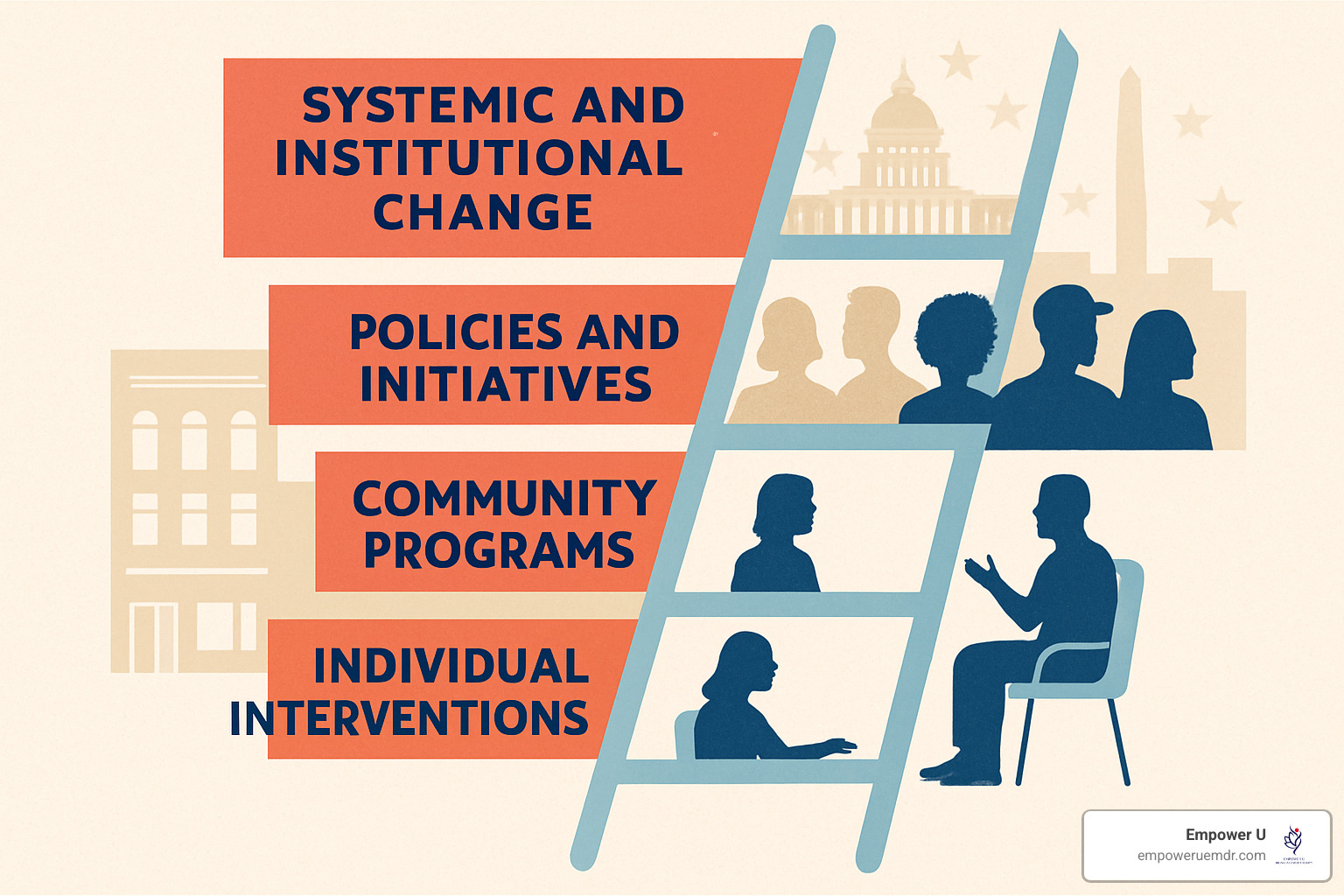
Practical Steps for Cultural Healing You Can Take Today
While EMDR therapy and other professional treatment provide crucial support for healing cultural trauma, there are things you can do right now to begin this process of cultural healing:
Educate yourself about your family's history and experiences of historical trauma. Understanding the historical and cultural context of your family's experiences can help normalize your feelings and reduce self-blame while building resilience.
Practice cultural self-care that promotes cultural healing. This might involve cooking traditional foods, listening to music from your heritage culture, or participating in cultural celebrations that connect you to your cultural practices.
Find your cultural community and build support networks. Connect with others who share similar experiences of cultural trauma, whether through cultural organizations, online communities, or informal gatherings.
Set boundaries that honor your authentic self. This might mean having difficult conversations with family members about your needs while maintaining respect and connection, recognizing how cultural trauma has shaped family dynamics.
Practice self-compassion and build resilience. Remember that your responses to cultural trauma are normal and understandable. You're not broken—you're adapting to complex circumstances created by historical trauma and ongoing discrimination.
Understanding Health Disparities and Cultural Trauma
Communities that have experienced cultural trauma often face significant health disparities that affect both mental and physical health. These disparities aren't just statistics—they represent the lived reality of how collective trauma impacts entire groups across generations.
Cultural trauma is a root cause of many mental and physical illnesses seen in marginalized communities. The chronic stress from ongoing discrimination, loss of cultural practices, and grief from historical trauma can manifest as anxiety, depression, heart disease, diabetes, and other chronic conditions. When trauma destroys family bonds and weakens community structures, it becomes even harder for communities to access the resources needed for healing.
The same communities that experience cultural trauma often face barriers to accessing culturally competent mental health care. This creates a persistent cycle where communities experience higher rates of mental illness and physical illness but have limited access to effective treatment that understands the role of cultural trauma in their symptoms.
Breaking this cycle requires innovative strategies that address both individual healing and community-level factors that contribute to health disparities. This includes training more therapists in cultural competence, developing treatment approaches specifically designed for healing culturally based trauma, and working to strengthen community structures that support collective healing.
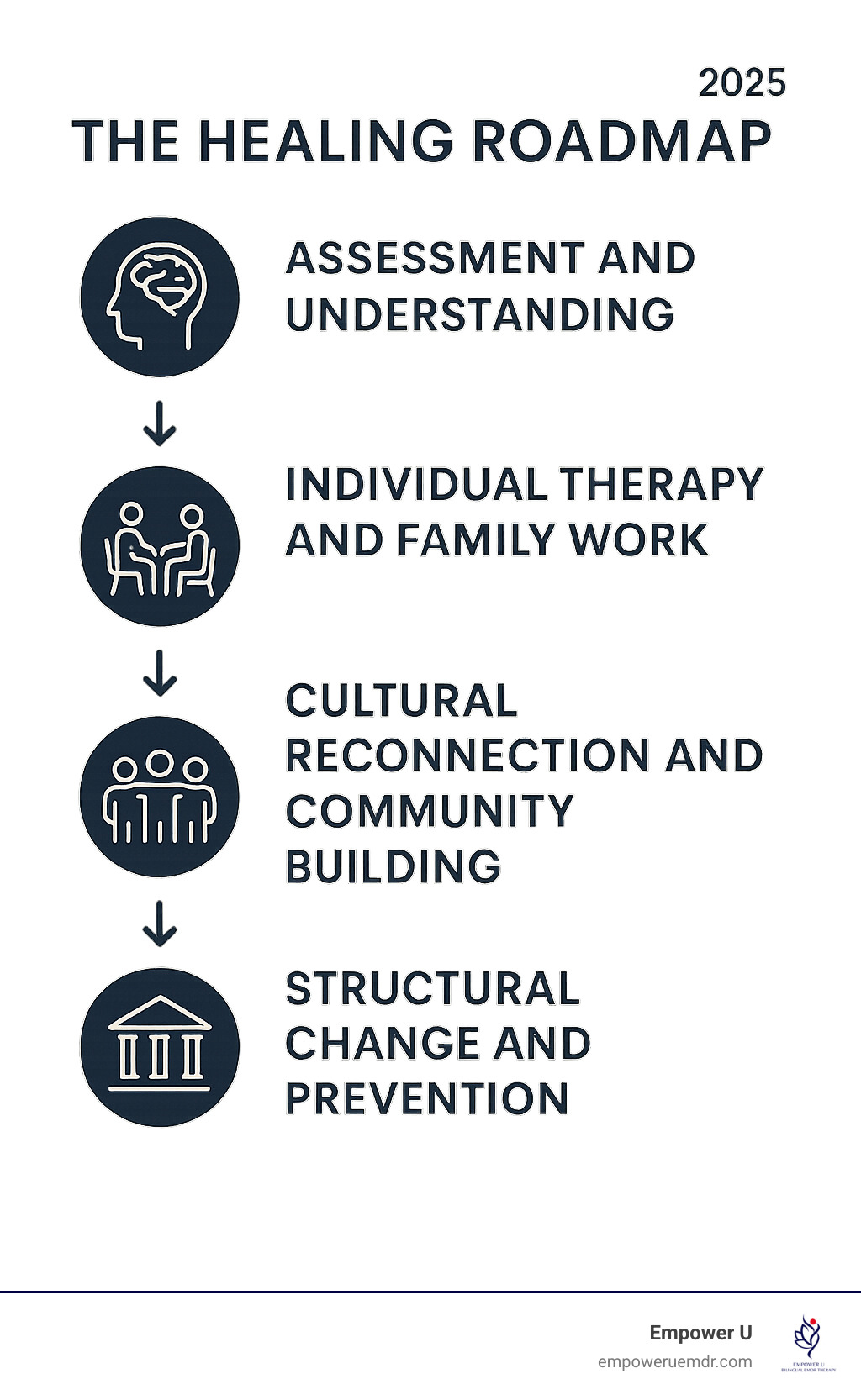
Taking the Next Step in Your Healing Journey
If you recognize yourself in these descriptions—if you're tired of feeling caught between worlds, struggling with anxiety and self-doubt, or carrying guilt about your choices—know that your reactions make perfect sense. You're not broken. You're responding normally to complex cultural dynamics that affect millions of people in communities around the world.
Healing cultural trauma and historical trauma is possible, but it requires support that understands the full context of your experience. It's not just about managing symptoms—it's about reclaiming your right to belong fully in your own life, honoring both your heritage and your authentic self while addressing the mental and physical health impacts of cultural trauma.
My approach combines evidence-based therapies like EMDR therapy, IFS, and CBT with deep cultural understanding and bilingual support. Together, we can work to address not just individual symptoms, but the broader cultural context that shapes your experience, promoting both individual healing and cultural healing.
You don't have to navigate this healing journey alone. If you're ready to begin addressing the deeper roots of your anxiety, depression, and identity struggles through culturally competent therapy, I invite you to reach out. Together, we can help you move from survival to authentic belonging, creating space for all parts of who you are while building the confidence and resilience to live as your full, authentic self.
Ready to start your cultural healing journey? Contact me to learn more about beginning online EMDR therapy sessions that address cultural trauma with the cultural competence and bilingual support you deserve. Let's work together to transform wounds into wisdom and create the integrated, authentic life that honors all aspects of your identity.

